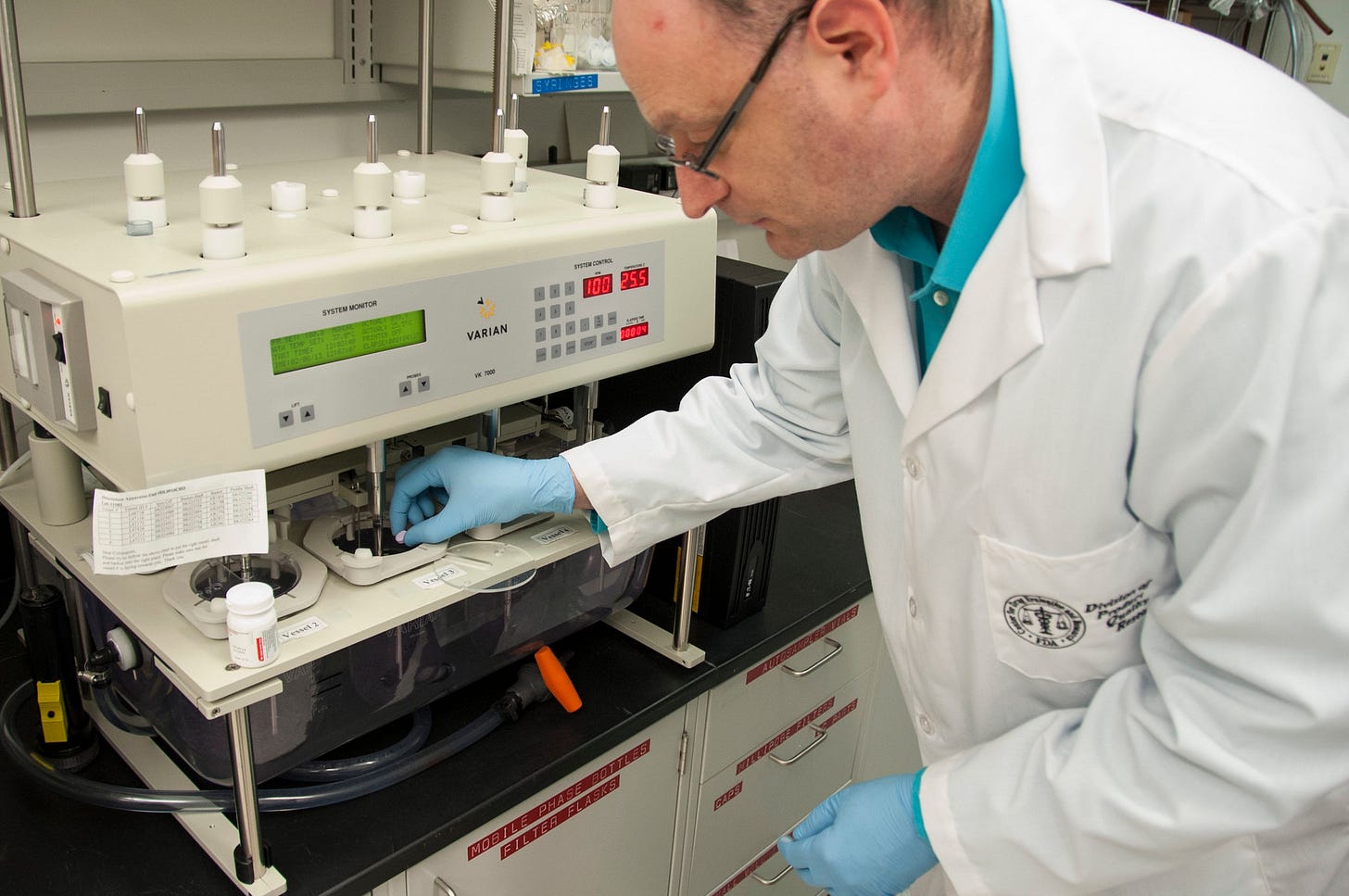On the Money: Donald Trump Wants Cheap Drugs. So Should We All.
But the way we finance drug development leads to high prices—and corruption
Today Money Trail is debuting a new column, “On the Money,” by Dean Baker, an award-winning macroeconomist who cofounded the Center for Economic and Policy Research, a Washington, D.C.-based think tank, in 1999. An expert in untangling the complexities of economics in plain English, Baker posts daily on his own Substack site. Money Trail will be reposting select columns by Baker on a regular basis.
President Trump just decided that he wants the drug companies to charge people in the United States less for prescription drugs. His immediate complaint is that we pay three times as much for drugs as people in other wealthy countries. He says that other countries should pay more, and we should pay less.
While there is no reason other countries need to pay more for drugs, Trump is absolutely right that we should pay less. The reason other countries pay less for drugs is that they have some sort of price controls or negotiations that limit the extent to which companies can exploit their government-granted patent monopolies.
President Biden began to restrict the price that companies could charge in Medicare, which would have started to take effect next year, except that Trump nixed the plans because they were Biden’s. While he has talked about his own controls, the timeline and substance of these controls are not clear.
But the bottom line here is that drug prices are a problem because of the way we choose to finance new drug development. Rather than pay for research directly, although we do pay for a considerable amount through the National Institutes of Health (NIH) and other government agencies, we offer drug companies patent monopolies to reward them for successful products.
These monopolies allow them to charge prices that can be 10 or even 100 times the free market price. If a drug is important for people’s health or even their lives, they will be prepared to pay an enormous price, if they have the money, or if they can get the government or a private insurer to pay for the drug.
These monopolies not only lead to high prices, they also invite the sort of corruption that people like Health and Human Services Secretary Robert F. Kennedy Jr. have complained about. When drug companies stand to make hundreds of millions of dollars, or even billions, from selling drugs at prices that can be several thousand percent above the cost of manufacturing and distributing them, they have an enormous incentive to misrepresent their drugs’ safety and effectiveness.
A systemic incentive for lying
This has been happening most notably during the opioid crisis, but the problem with drug companies misleading doctors and the public about their drugs’ usefulness and safety happens literally all the time. This is Economics 101: The current patent system gives an enormous incentive for this sort of lying. The idea that government bureaucrats will somehow be able to snuff it out when there is so much money on the table is absurd on its face.
It is the same sort of problem the government faced with prohibition in the 1920s. We were not going to be able to keep people from drinking and selling alcohol, we just created a huge criminal industry. Our drug industry is still above ground, but it engages in lots of criminal behavior.
If Trump was actually interested in doing something useful here, he could look to increase the funding for NIH instead of slashing it, and have it actually develop drugs and shepherd them through the testing and approval process. He also could require that all grant recipients make all their results available as soon as practical. (I talk about this alternative route, here, here, and in chapter 5 of my book “Rigged.” (It’s free.))
Unfortunately, Trump has little interest in crossing powerful actors like the pharmaceutical industry. Instead, we just get reality TV show executive orders. They don’t do anything in the world, and at this point they are not even entertaining.
Dean Baker is a senior economist at the Center for Economic and Policy Research. This column originally appeared on his Substack site.
Money Trail is a fiscally sponsored project of the Alternative Newsweekly Foundation, a 501(c)(3) public charity, EIN 30-0100369. Donations are tax-deductible to the extent allowed by law.






